Welcome to space
Corporate needs you to find the difference between this picture and this picture
I always liked heights. I never knew why, until I read Impro. We'll get to it in the second section. For now, just look at some pictures. I made them ex-specially for you, I promise.
Here's the same crowded street. But:
- Picture A: what I see when I'm on the street.
- Picture B: what I see when I'm sitting 1.5 meters above the street.
I prefer the second picture. I also prefer being in the second picture.
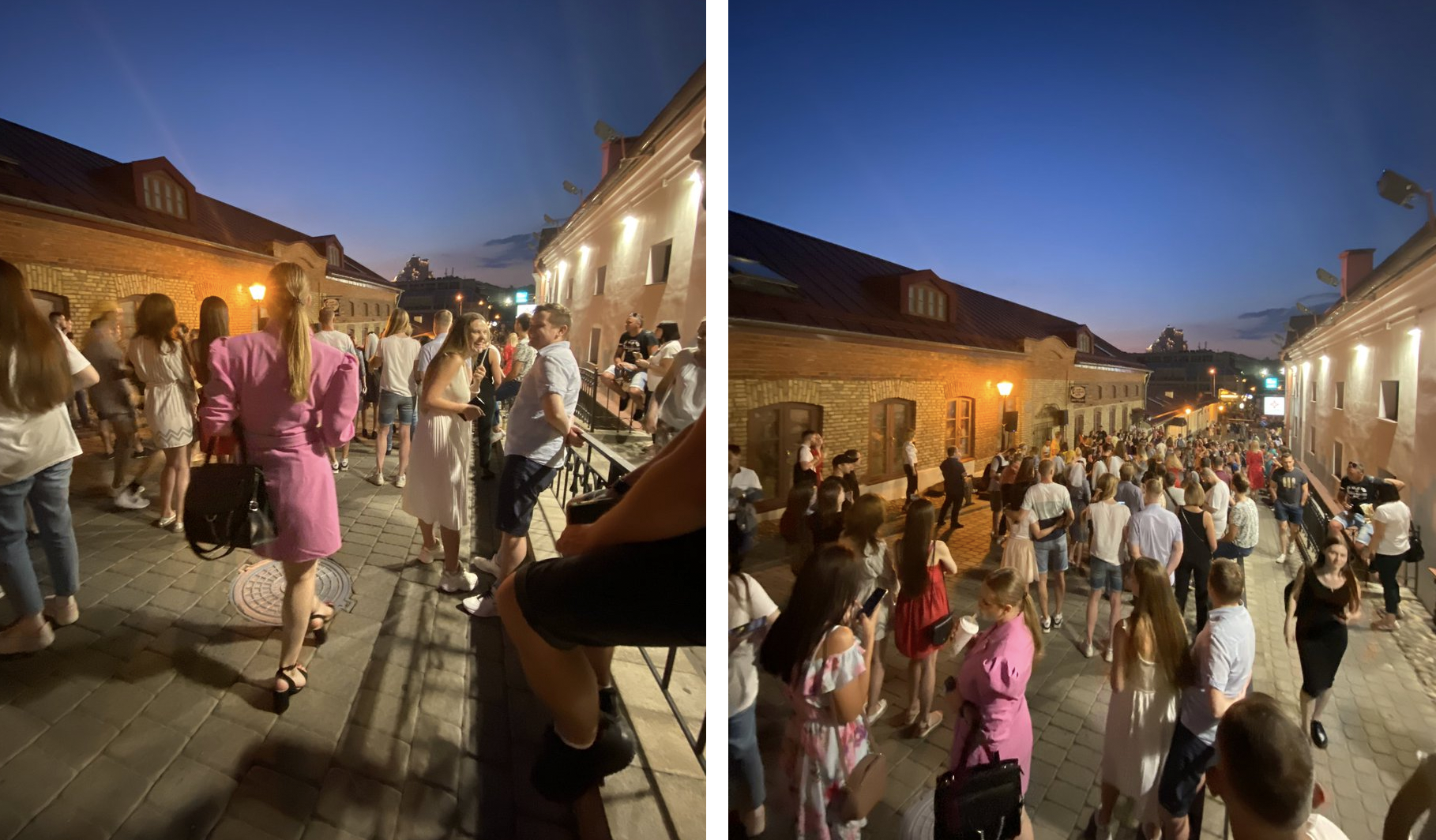
When I'm above, I feel like I own the street. This is why I always try to end up as high as possible; if I see any elevation, big or small, I will jump on it. Three more examples:
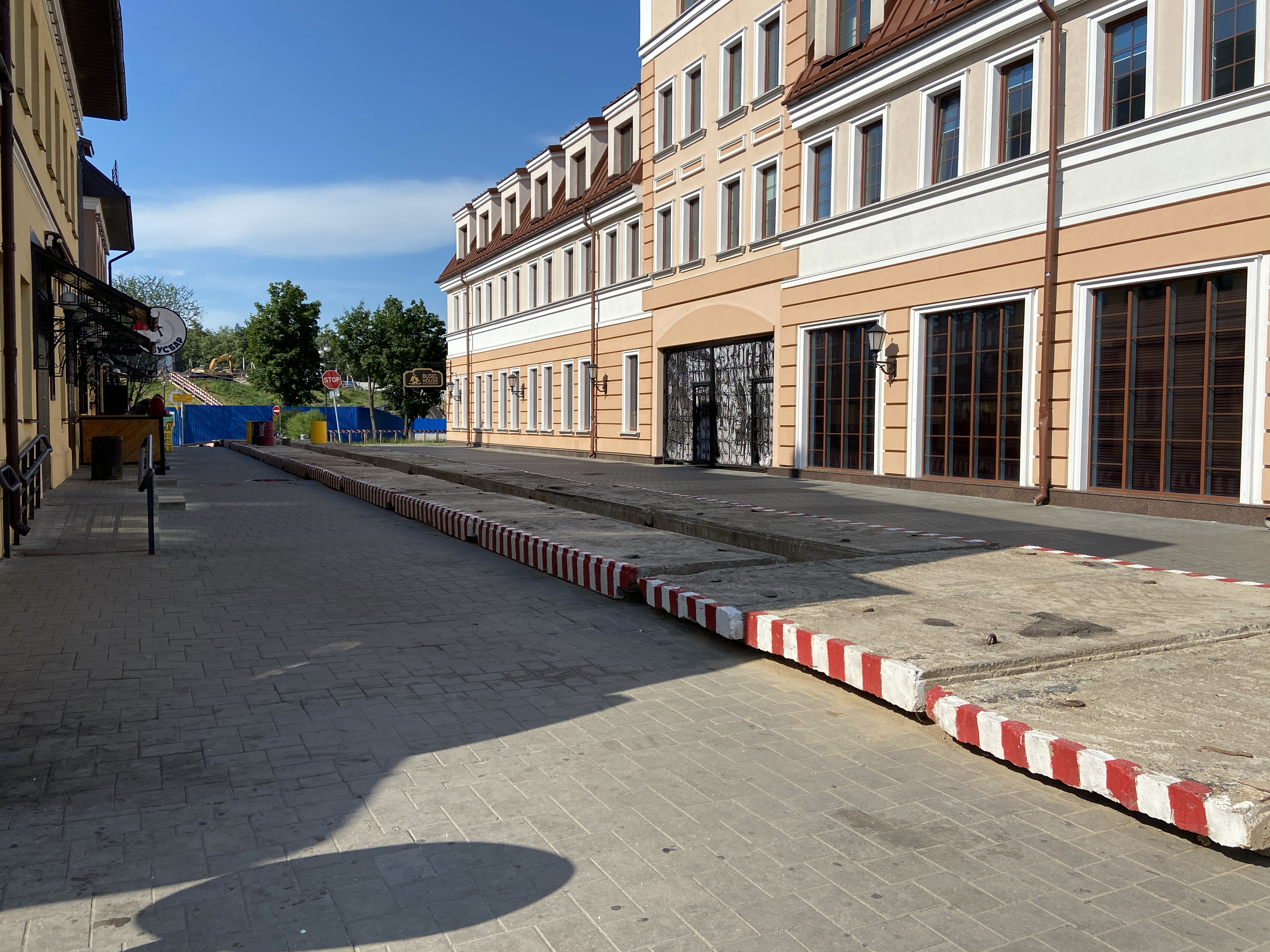
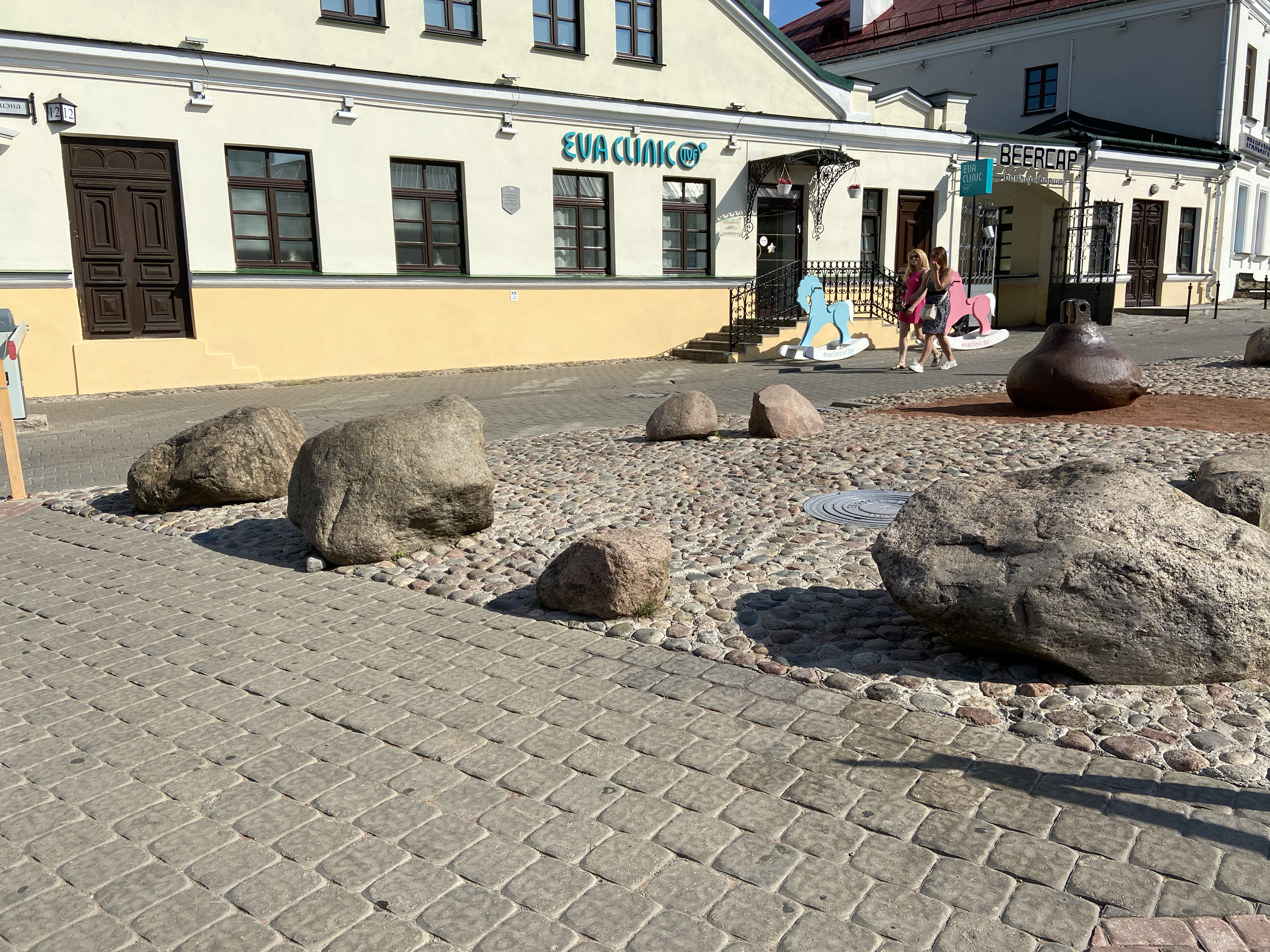

The concept of space
I want to convince you to care about space. My chief adversary in this enterprise is that is that there is a lot of stupid ways to talk about space. "Owning the space", "personal space", unpleasant guys spreading their legs on the subway. And so I always dismissed the whole concept.
It changed when I started reading Keith Johnstone's book Impro. It treats space as a field around a person. "Imaginary iron filings marking out the force fields."
When I was commissioned to write my first play I’d hardly been inside a theatre, so I watched rehearsals to get the feel of it. I was struck by the way space flowed around the actors like a fluid. As the actors moved I could feel imaginary iron filings marking out the force fields.
When you are surrounded by other people, your space shrinks. When you feel unsafe, your space shrinks even further.
When I investigated myself I found [...] a parabola sweeping ahead of me like a comet’s tail. When I panic, this parabola crushes in. In stage fright space contracts into a narrow tunnel down which you can just about walk without bumping into things. In cases of extreme stage fright the space is like a plastic skin pressing on to you and making your body rigid and bound. The opposite of this is seen when a great actor makes a gesture, and it’s as if his arm has swept right over the heads of the people sitting at the back of the audience.
You are aware of other people's "force fields". If you feel low-status, you will try not to intrude. Walking down an empty street can be much more pleasant than if there's a single other person walking towards you.
Here is the part that made it click for me: "having our space flow out unhindered" when standing on a hill and looking across the landscape is a heartbreakingly right way to describe it.
People will travel a long way to visit a ‘view’. The essential element of a good view is distance, and preferably with nothing human in the immediate foreground. When we stand on a hill and look across fifty miles of emptiness at the mountains, we are experiencing the pleasure of having our space flow out unhindered.

The reason to notice space is not "take up as much space as possible and you'll feel better". We are not amateurs here.
The reason to notice space is that it's a visceral demonstration of how much of what you can and can't do is just in your head.
Space and the City: how to get a feel for space if you don't spend much time around people
Let's look at cities. Assuming you live in one, or maybe lived in the wild days of your youth.
Walking past the brick extension on a street in Minsk will make your space shrink unpleasantly. but just for a moment:
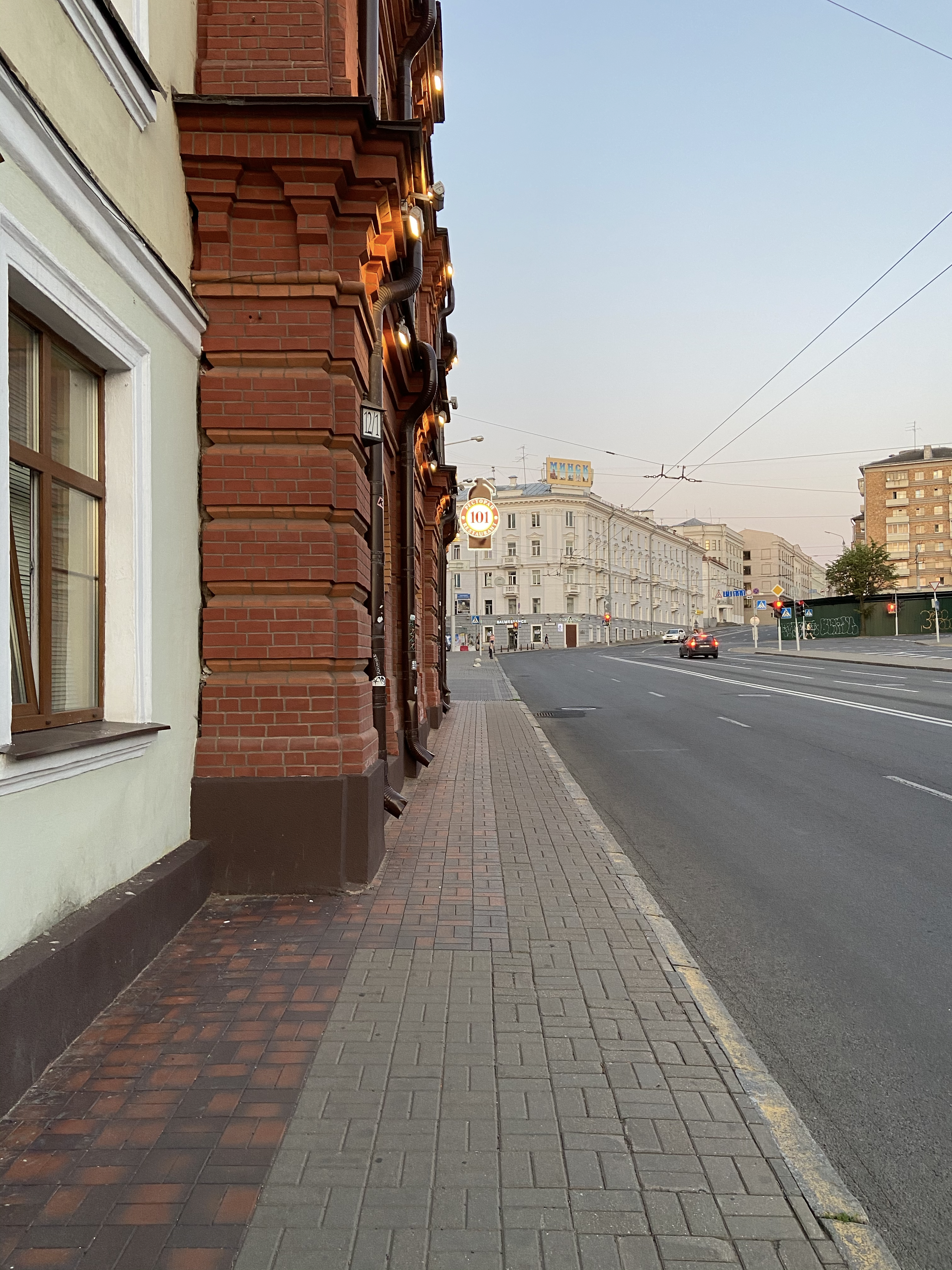
By and large, Minsk sidewalks are okay. The most space-hostile sidewalks I had to put up with were in Berlin.
This is a very central location in Berlin — Hackescher Markt. Observe the cramped sidewalk. Every inch of it is claimed by a restaurant or a store:
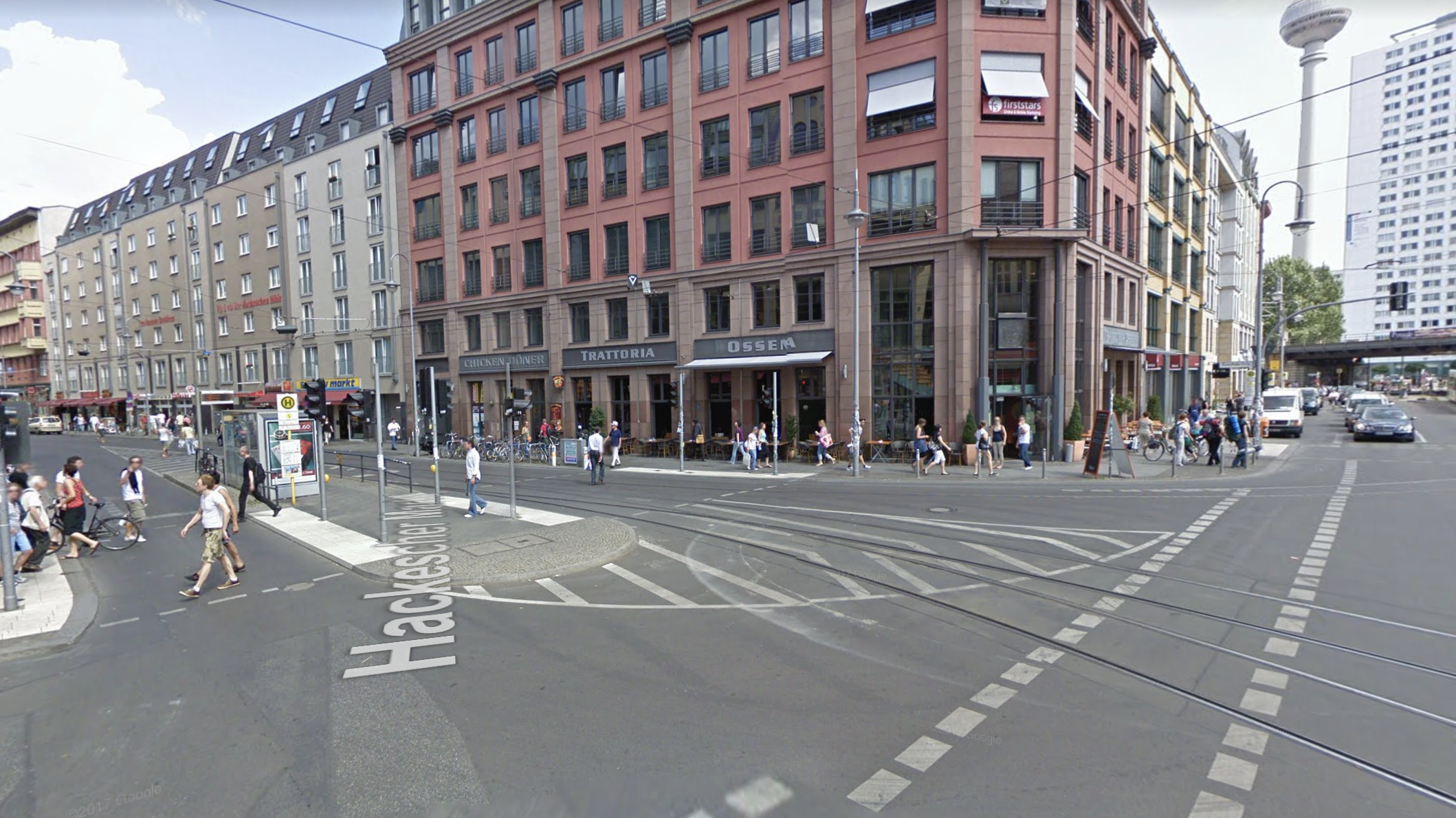
This, for comparison, is a street near the center in Moscow. The gated building does not steal pedestrians' space:
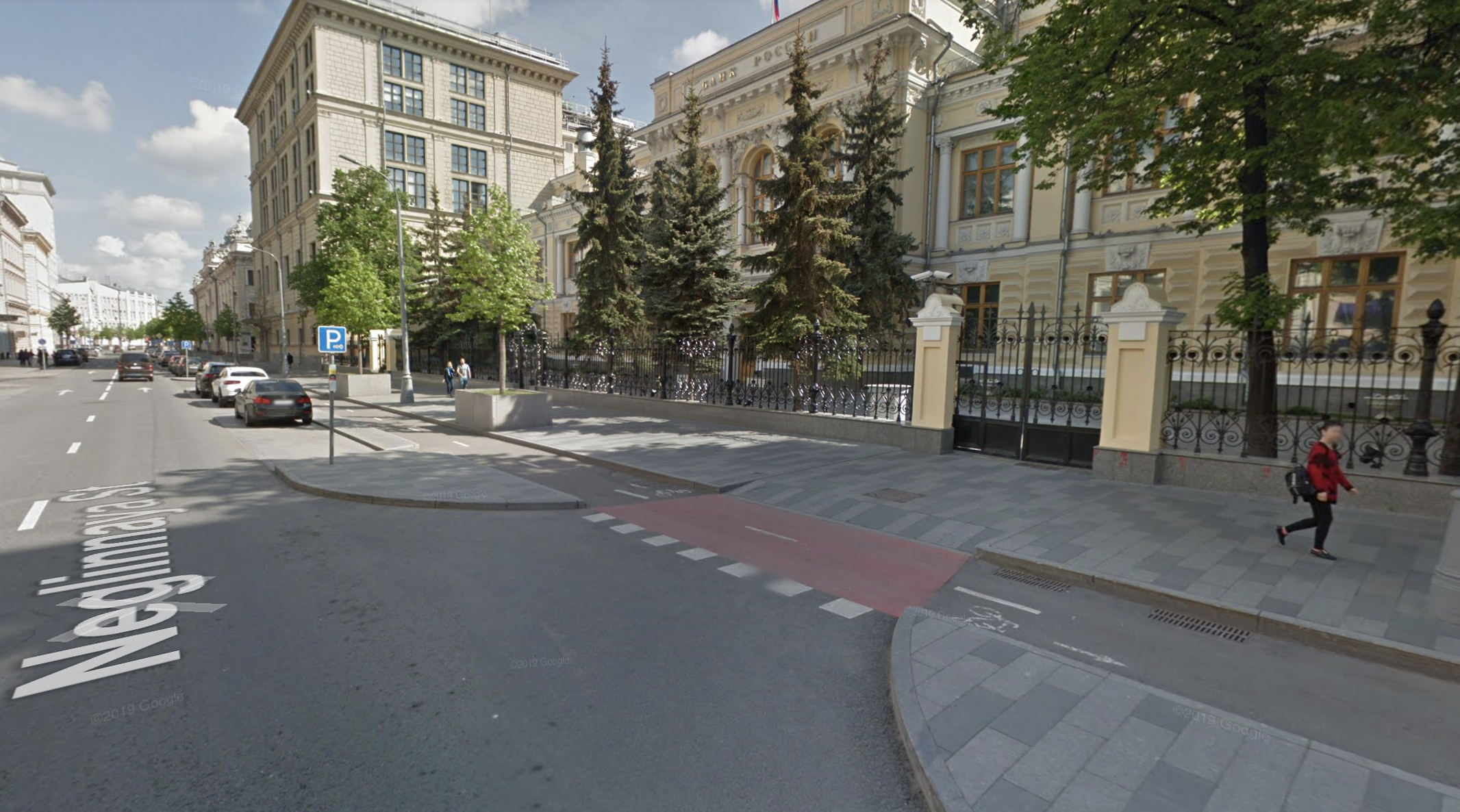
Another Moscow sidewalk. It's not great, but it's alright.
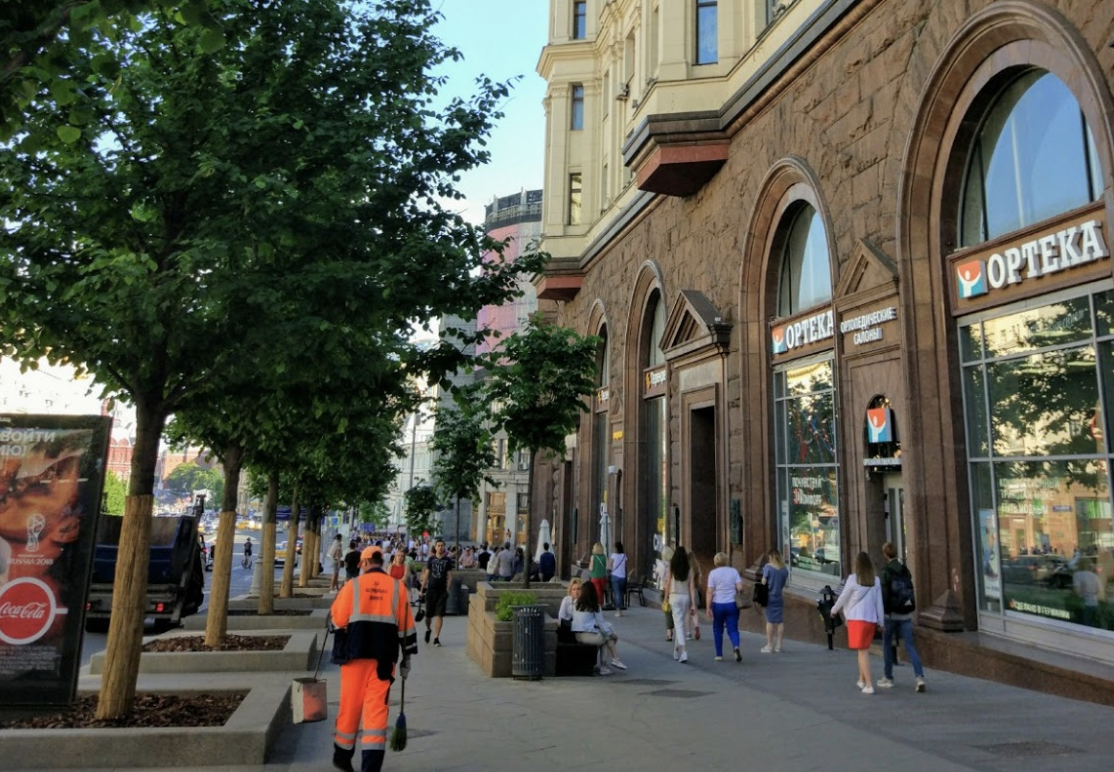
Back to Berlin. If, by chance, a street in Berlin does have a wide sidewalk, the space can't flow anyway — it will be stolen in one way or another. These trees, and the ground squares around them, look like they were designed to obstruct the space:

If the space is not stolen by trees, it will be stolen by an outdoor cafe. An outdoor cafe is particularly bad — because it is explicitly a space for other people, the customers of the cafe. It's not just an area taken by chairs. By walking past a cafe, you are intruding into a space that you don't belong to.
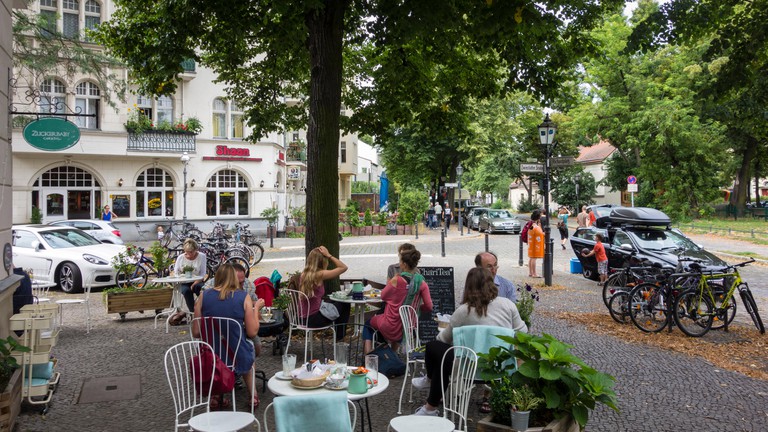
There are some awful sidewalks in Moscow, too. But in Moscow, I feel much better than I do in Berlin. After more than a year in Berlin, I had not found a place I felt like I owned. In Berlin, life happens inside the buildings, not outside of them.
Ahem. My point is: if you want to get a feel for space, watch how you feel on the sidewalks — especially empty vs busy ones. Watch yourself navigate the flow.
Doing where you want
How does this connect to doing what you want?
Doing what you want requires intruding into others' spaces. Do it not because you want to feel powerful, but because there are good things you could do, if only you didn't shrink away from everyone and anyone's space.
"How do I slide into [someone's] DMs"? You have something to say that would help the other person. Or the other way round. Or you want to be friends. Other people benefit from having friends. If you can be a good friend, that's a reason to intrude.
The trick is: some people deny the concept of space intrusion at all, and this is bullshit, and you know it. That's why the platitudes don't work. By popping into a book store when you don't intend to buy anything, by offering help to a stranger, by replying to a tweet, by asking in a work chat if somebody wants to buy your sofa, by promoting your side project in a community that you don't belong to, by coming up to chat with the speaker after them giving a talk, by ever getting close to another person, you are intruding into an existing space — and causing someone else's space to shrink.
"You, child or adult, wish to do something for yourself that may disappoint someone else", the definition of guilt goes. It is not the point of this post to convince you that you are allowed to do things for yourself — I assume that you are already trying to do what you want. The point of this post is to turn your attention to another area in which you are failing yourself.
Don't do anything. Just watch how your space shrinks and grows. That's enough for now.